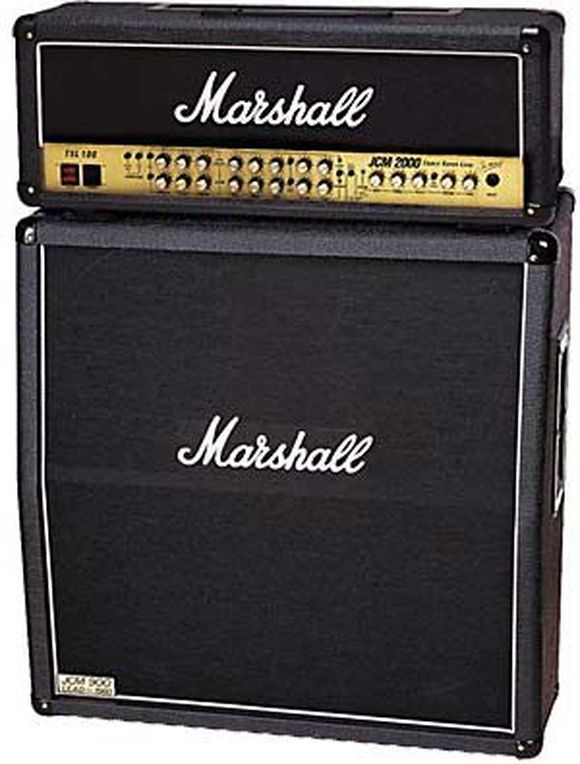5. Stack or Combo?
Since the Fifties, two basic types of amplifier setup have been available - the separate amp or head and speaker setup (known as a stack), and the combination amplifier or combo, where both are housed in a single unit.

Most amp manufacturers make both combos and stacks - in fact the same design is often released in both forms. The main reason for separating the amp and speaker cabinet is a practical one - guitar amps contain some pretty heavy components. Guitar cabinets usually use ten or twelve-inch speakers - 2x12 is generally the practical limit for combos, whereas most stacks employ one or more 4x12 cabinets. Picture Jimmy Page or Eddie Van Halen on stage, and your mental image probably features a Marshall stack with two 4x12 cabs. Escalating volume levels among stadium rock bands in the Seventies and Eighties led to the common sight of a whole row of these on stage, though its not unusual for one cab to be miked and fed to the PA system, while the rest of the cabs are empty and there purely for show!
There is something about the sound and feel of playing through a stack that you dont quite get with a combo not just the sheer volume level (some combos have more than enough for most gigs), but the sense of solidity and chunkiness, particularly in the bottom end, which results from the amount of air that four or more speakers can move.
Another advantage of the stack is that some of the speakers are raised to near the guitarists ear level. While a combo placed on stage projects well to the audience, guitarists sometimes struggle to hear themselves, particularly on a small stage where their ears may be much closer to the cymbals than to the knee-height guitar amp! This often results in guitarists turning up too loud without knowing it. The situation can be improved by mounting the amp on an angled stand, but these are not always tremendously stable where large combos are concerned.
Stacks are also inherently more flexible - the same head can sound very different depending on the speaker cab used. Various factors have an effect, including the make and model the speakers themselves, and whether the cab is open or closed at the back.
If the advantages of a stack are not for you, you may want to return to the contents page and check out our Online Advisor on combos.



